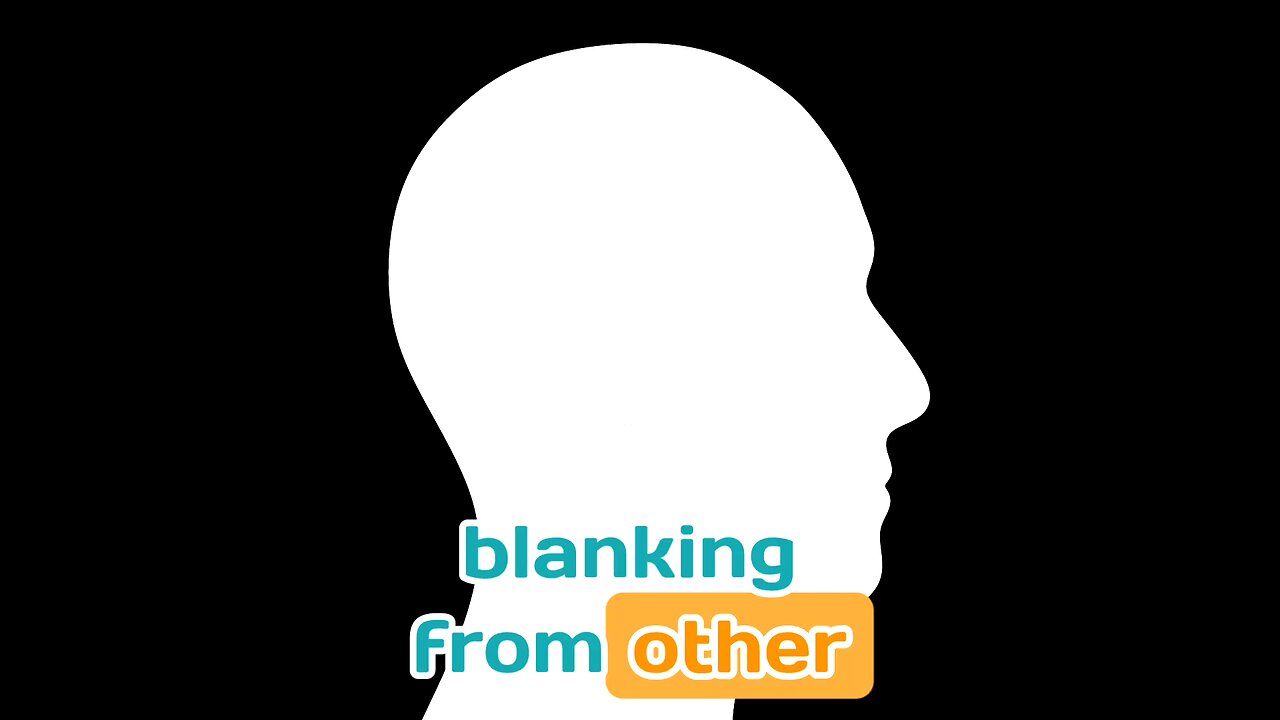Premium Only Content

Moments of Nothingness: The Brain's Reset Button
Ever experienced a moment when your mind suddenly goes entirely blank—a fleeting pause where your thoughts seem to vanish? It’s not a glitch or a memory failure but rather a distinct state in our continuous stream of consciousness. Researchers are beginning to view this “blank” as an integral, measurable moment in our mental life.
Cutting-edge neuroimaging techniques like EEG and fMRI reveal that during these blank episodes, key regions such as the supplementary motor area and the hippocampus show a marked drop in activity. This isn’t about the brain “shutting off” completely; it’s a temporary shift in neural dynamics, evidenced by specific patterns that clearly distinguish mind blanking from other cognitive states.
Unlike mind wandering—where your thoughts roam freely from one topic to another—mind blanking signals an almost complete absence of conscious content. It appears that while our inner monologue might normally overflow with ideas, there are precise moments when the brain’s “thought engine” genuinely hits a pause button.
Several factors can trigger this state. Extended periods of intense concentration, fatigue, or even after strenuous physical exertion, the brain may resort to a momentary blank. These blanking moments seem tied to shifts in arousal levels, suggesting that the brain is actively managing its resources during high-demand periods.
In fact, neuroscientists refer to such episodes as “local sleep” states. Even though you’re awake, small patches of your brain can temporarily display sleep-like characteristics—showing slow oscillations and a significant decline in signal complexity, as if catching a few quick micro-naps.
It isn’t just about reduced brain activity; your body reflects it too. During these intervals, physiological changes occur—your heart rate may drop, and your pupils might constrict—a constellation of signs indicating that even for a moment, your body and brain are shifting gears toward a sleep-like mode.
Studies estimate that we spend approximately 5% to 20% of our waking hours in this blank state. Interestingly, these episodes are more frequent in some individuals, particularly those with conditions like ADHD, making mind blanking an important phenomenon to understand in the broader context of attention and cognitive control.
Far from being a flaw in our mental processes, these brief blank moments may serve an essential function. They could act as a neural “reset” mechanism—allowing your cognitive networks a chance to recalibrate, which might help stave off mental fatigue and optimize overall performance.
However, there is a flip side. While this automatic “reset” can be beneficial, it sometimes coincides with lapses in attention or memory errors—especially during monotonous tasks—highlighting a delicate balance between the brain’s need for rest and its demand for continuous cognitive output.
Ultimately, the phenomenon of mind blanking underscores the dynamic, ever-changing nature of our consciousness. Even during moments of perceived emptiness, your brain engages in a subtle, restorative dance—an elegant interplay between wakefulness and sleep that could be key to maintaining cognitive vitality.
#MindBlanks #Neuroscience #BrainReset #MentalClarity #Consciousness #CognitiveScience #AttentionSpan #BrainFacts #ThoughtEngine #NeuralPause
-
 59:58
59:58
Human Events Daily with Jack Posobiec
2 hours agoHUMAN EVENTS DAILY WITH JACK POSOBIEC
18.9K23 -
 1:12:48
1:12:48
LindellTV
2 hours agoTHE MIKE LINDELL SHOW: JIMMY KIMMEL SUSPENDED
11.9K4 -
 1:57:27
1:57:27
The Charlie Kirk Show
4 hours agoMegyn Kelly Remembers Charlie + Jimmy Kimmel Off the Air | 9.18.2025
284K91 -
 LIVE
LIVE
SternAmerican
1 day agoElection Integrity Call – Thurs, Sept 18 · 2 PM EST | Featuring Rhode Island
113 watching -
 4:22
4:22
Michael Heaver
4 hours agoLabour Face Brutal UK WIPEOUT
17.7K5 -
 10:32
10:32
Faith Frontline
19 hours agoKenneth Copeland EXPOSED as America’s CREEPIEST Pastor Yet
14.5K13 -
 4:33:50
4:33:50
Right Side Broadcasting Network
23 hours agoLIVE REPLAY: President Trump Holds a Press Conference with Prime Minister Keir Starmer - 9/18/25
87.6K43 -
 1:01:35
1:01:35
The Rubin Report
5 hours agoJimmy Kimmel Humiliated as NY Post Exposes His Dark Reaction to Being Canceled
78.1K123 -
 12:49
12:49
Clownfish TV
11 hours agoJimmy Kimmel Pulled OFF THE AIR for Charlie Kirk Comments?! | Clownfish TV
28.5K25 -
 51:20
51:20
TheAlecLaceShow
4 hours agoJimmy Kimmel FIRED | ANTIFA Labeled Terrorist Org | Guest: Matt Palumbo | The Alec Lace Show
26.2K6